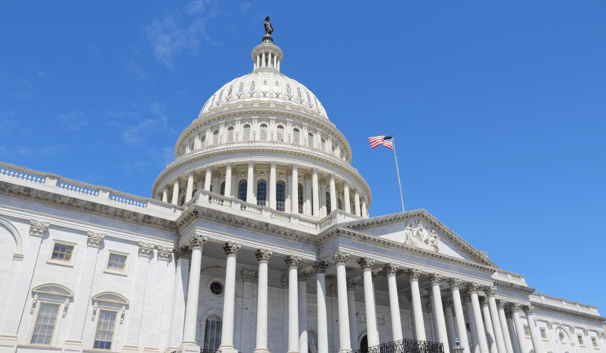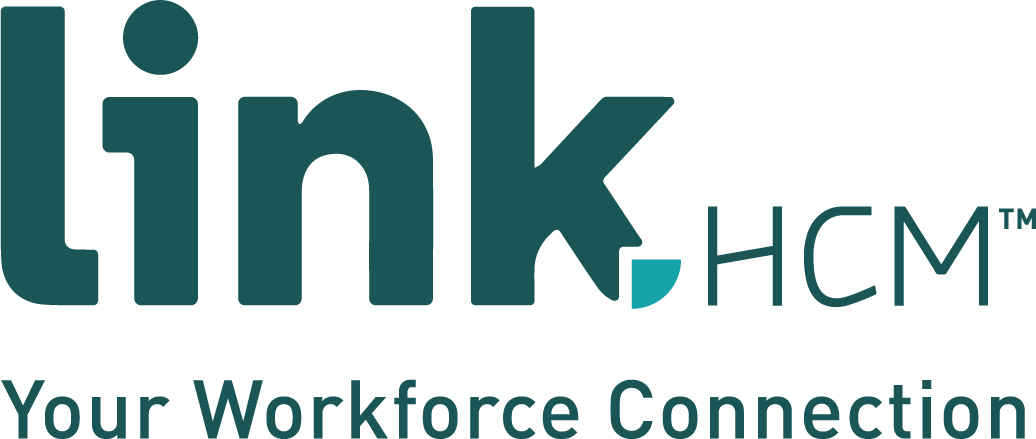
It has been a busy few weeks, with rapid changes from new legislation, guidance and compliance updates. Most of the updates greatly affect HR professionals and business owners.
Review our round-up of the top headlines for March 2021 to make sure you haven't missed anything.
BREAKING: President Biden signs The American Rescue Plan Act into Law
President Biden officially signed the American Rescue Plan Act into law today, March 11, 2021. The law will go into effect on April 1, 2021
Over the weekend, the Senate approved amended changes to the American Rescue Plan Act. It was approved by the House on Wednesday, March 10.
The American Rescue Plan will direct assistance to families, invests in vaccine distribution, ensures schools have the resources to resume in-person learning safely, and supports small businesses.
How does the American Rescue Act impact Human Capital Management professionals?
Business Provisions
- Extension and expansion of the employer credits for paid sick and family leave benefits. Employer credits as established in the Families First Coronavirus Response Act (FFCRA) have been extended to September 30, 2021. Eligibility has been expanded to state and local governments that also provide this benefit. Additionally, the bill added paid time off for employees receiving the vaccine and paid time off for vaccine complications as qualifying reasons for FFCRA leave credits.
- Credits for providing subsidized COBRA benefits
- Establishes Restaurant Revitalization Plan, appropriating $28.6 billion for the SBA to administer a grant program to support restaurants.
- Expanded PPP Eligibility and allocates an additional $7.25 Billion to the U.S. Small Business Administration (SBA) for the program.
- Extension and expansion of the Employee Retention Credit, increasing the availability and value to employers who are "severely financially distressed," as well as employers who qualify as a "recovery startup business."
What else is in the American Rescue Act?
- 100% COBRA Coverage Contributions: Those who are entitled to COBRA coverage any time between April 1, 2021 through September 30, 2021 due to a loss of coverage under a group health plan resulting from involuntary loss of employment or reduction of hours, will have their COBRA premium due within such period fully subsidized. In providing for a full subsidy for Eligible Individuals during this time period, the Senate version of the Bill increased the subsidy level from the 85% subsidy that was originally introduced and passed by the House last week.
- Increase in the Affordable Care Act's Premium Tax Credit for 2021 and 2022, for health insurance purchased through an exchange.
- $1,400 direct payments to each American, including for each child, for individuals making less than $75,000 a year and married couples making less than $150,000 a year to help those struggling to pay their bills and help get the economy moving.
- $300/week enhanced unemployment benefits through Labor Day, with $10,200 tax free for those making less than $150,000, to help Americans who are waiting to get back to work.
- $20 billion for development and distribution of vaccines, including $7.5 billion in CDC funding to address racial disparities and ensure vaccines are reaching every community, including communities of color hit hardest by the pandemic.
- $48.3 billion for testing, tracing, and mitigation efforts to fight the spread of COVID-19 and provide PPE to frontline health care workers.
- $350 billion in critical aid to state, local, territorial, and tribal governments to keep frontline workers such as teachers, law enforcement, and health care workers, on the job.
- 15% increase in SNAP benefits through September to help families struggling to put food on their table.
- $3,600 expanded child tax credit per child under 6 and $3,000 per child from ages 6 to 17 for parents making less than $75,000 or $150,000 per couple; because it is now fully refundable for the lowest income families, this will cut child poverty in America in half.
- Nearly $35 billion to strengthen the Affordable Care Act and ensure individuals have access to quality, affordable health care during this public health crisis.
- $29 billion targeted specifically to help struggling restaurants who have been hit the hardest by measures to contain the spread of COVID-19.
- $50 billion for the Disaster Relief Fund under the Federal Emergency Management Agency to assist in securing PPE, distributing vaccines, and sanitizing public buildings.
- Over $125 billion for K-12 schools, $40 billion for colleges, and $39 billion for child care providers to ensure a return to safe in-person learning for students, teachers, and staff
U.S. House Passes the PRO Act
The U.S. House of Representatives passed the Protecting the Right to Organize (PRO) Act. If enacted into law, this would be the most expansive labor relations legislation since the National Labor Relations Act was enacted in 1935.
The PRO Act would provide protections for workers trying to organize. Passage in the U.S. Senate is expected to be an uphill battle.
Read more about the PRO Act from NPR.
March: The 1-Year Anniversary of COVID-19
For many, March 11, 2020 marked the day that COVID-19 became a real threat in the U.S. On this day, the World Health Organization officially declared the COVID-19 outbreak a pandemic. And, this is the day that school, work and other public closures began going into effect across the country.
Now, a year into the pandemic, employees nationwide are reporting extremely high levels of burnout and fatigue. Many organizations are struggling to keep employees engaged, and company culture is taking a toll for the majority.
Is your organization struggling with remote employee engagement or pandemic fatigue? Read about some rewards and ideas to improve remote employee engagement from Bonusly.
Updates to Payroll Protection Program (PPP)
The deadline for second round of PPP is March 31. If you are planning to apply, pay attention to the revised applications:
- The original application forms for second and first draw have been revised
- Two new application forms have been added for sole proprietors, independent contractors, and self-employed - one for first draw and one for second draw
- Note: Some banks are still exclusively accepting the previous version of application forms. If you are planning to apply for second round PPP funds, please confirm the process and documentation with your bank.
On February 22, President Biden announced a PPP loan update, focused on ensuring equity. This enacted an immediate exclusivity period -- 14-days where only businesses and nonprofits with 20 employees or fewer were able to submit applications. The exclusivity period ended on March 9.
Additionally, the February update loosened restrictions on business owners who had prior non-fraud felony convictions or student loan debt delinquency.
Read more FAQs on the new PPP updates here from Alignable.
California Small Business Relief Program
The California Relief Grant Program has been rolling out in the state since the beginning of 2021, awarding direct grants between $5,000 - $25,000 to small businesses impacted by the pandemic.
The first application round opened late December 2020, and the second round opened February 2 and closed on February 18. Here is information on the upcoming rounds:
- Round 3 (only those waitlisted from Rounds 1 and 2) - Friday, March 5 through Thursday, March 11, 2021
- Eligible Applicants: This is a closed round and only available to eligible applicants who were waitlisted in Rounds 1 and 2 – only existing applicants will be selected. If you were waitlisted, you do not need to reapply. New applications will not be accepted in this round.
- Round 4 - Tuesday, March 16 through Tuesday, March 23, 2021
- Eligible Applicants: Only nonprofit cultural institutions with any revenue size that meet eligibility criteria.
- Round 5 - Thursday, March 25 through Wednesday, March 31
- Eligible Applicants: Current waitlisted small businesses and nonprofits not selected in Rounds 1, 2, or 3 and new applicants that meet eligibility criteria.
- Round 6 - Dates TBD, announced soon
- Eligible Applicants: Current waitlisted small businesses and/or nonprofits not selected in Rounds 1, 2, 3, 4 or 5 and new applicants that meet eligibility criteria.
To be eligible, you must meet the State of California's definition of Small Business. To these standards, “small business” means an entity that has yearly gross revenue of $2.5 million or less based on most recent available tax return (2018 or 2019); must have minimum yearly gross revenue of $1,000.
Organizations Begin Preparing Vaccination Plans
In December 2020, the COVID-19 vaccine roll-out began in the U.S. This prompted a big question among most business owners and HR professionals: Can I require my employees to get the COVID-19 vaccine before returning to the workplace?
To begin addressing this , the EEOC issued guidance on employer vaccine policies. But, as vaccines become more accessible for Americans of all ages, more guidance will be expected to ensure a smooth roll-out of vaccination policies within organizations.
Check out our guide and start preparing to create your organizations's vaccination plan: HR's Guide to COVID-19 Vaccines in the Workplace.


Leave a Comment